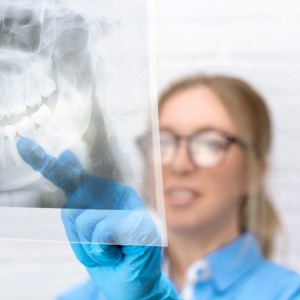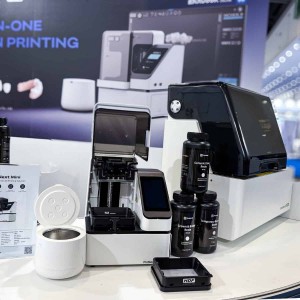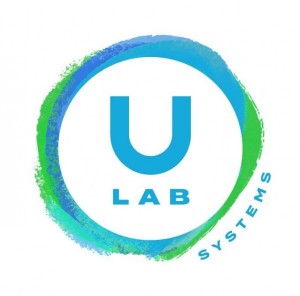
Commonly prescribed medications for high blood pressure have unexpected side effects
Cardiovascular diseases are the world’s leading cause of death, and high blood pressure, or hypertension, affects more than one billion people globally, with most living in low- and middle-income countries.
Many people diagnosed with hypertension are prescribed angiotensin-converting enzyme inhibitors—better known as ACE-1 inhibitors (ACEIs)—and/or angiotensin receptor blockers (ARBs), which act on the renin-angiotensin (RAS) pathway. But hypertension remains uncontrolled in most people with the disease, indicating that other affordable treatments are needed.
Now, in an article published in Hypertension Research, researchers at Penn’s School of Dental Medicine and Perelman School of Medicine have investigated the benefits of adding oral ACE2—previously shown to have positive effects in injectable form for RAS-associated metabolic diseases—to these commonly prescribed medications.
“This enzyme [ACE2] also regulates hypertension and heart disease,” says co-author Henry Daniell, W.D. Miller Professor in Penn’s School of Dental Medicine. Yet, he says, no one had looked at the relationship between these drugs and ACE2.
The RAS pathway regulates blood pressure by triggering the release of renin when blood pressure falls. Renin converts angiotensinogen into angiotensin I, which ACE then converts into angiotensin II, a vasoconstrictor. ACE inhibitors and ARBs lower blood pressure by acting on different steps of this process: ACE inhibitors inhibit the formation of angiotensin II, while ARBs block its ability to bind to its receptors. ACE2 lowers angiotensin II levels by converting it to angiotensin1-7 (Ang1-7), which promotes vasodilation and reduces blood pressure.
In this study, Daniell and colleagues built on their previous work using a lettuce-based plant-encapsulated system to evaluate oral delivery of ACE2 in pet dogs with myxomatous mitral valve disease. Importantly, these dogs also had elevated systolic blood pressure that was being treated with ACEIs and/or ARBs.
“These were pet dogs,” says Daniell, “So the owners, understandably, did not want to change their current medications. So, we had to continue their treatments with ACEI or ARB and then give them ACE2 in addition to see whether it was beneficial.”
What they found surprised them.
“The first surprise,” says Daniell, “was that in the dogs on ACE inhibitors, those drugs inhibited the enzyme [ACE2] that we were giving them!” And the second surprise? ARBs increased the angiotensin II pool.
Daniell says there are two things you don’t want to do when trying to lower blood pressure. “You don’t want to inhibit ACE2, and you don't want to increase the angiotensin II pool. And here we saw both.” However, the good news, he says, is that not all ACEI drugs inhibited ACE2 activities equally—lisinopril, widely prescribed in the United States, inhibited ACE2 much less than other ACEI drugs.
The implications of these findings have clinical relevance, says Daniell, as many human patients are prescribed one or both of these medications, and ACE2 has been shown to have cardioprotective effects that might have therapeutic potential.
ACE2 inhibition has also been linked to SARS-CoV-2, the virus that causes COVID. “I was stunned because this inhibition [with ACE inhibitors] was just like what we observed with the coronavirus,” says Daniell. “Given what we saw during the pandemic, there is no question that ACE2 is a key metabolic enzyme.”
Next steps for Daniell and his colleagues are to repeat this study with dogs on lisinopril. Daniell explains, “We did this study to see how beneficial ACE2 is, but we couldn’t do that because its activity was killed by all ACE inhibitors except for lisinopril.”
Ultimately, Daniell would like to use his plant encapsulation system to evaluate the benefits of ACE2 treatment in humans, as an IND for this delivery system was recently approved by the FDA. He notes that currently there is no biologic drug to improve cardiopulmonary diseases. This IND approval makes “ACE2 the first engineered human blood protein expressed in plant cells approved by the FDA for evaluation in human clinical trials.”
“The average cost of launching a new injectable biologic drug [like ACE2] is $2.5 billion,” says Daniell. “My entire career has been focused on making drugs affordable—especially for common diseases like diabetes and hypertension.”
Henry Daniell is the W.D. Miller Professor in the Department of Basic & Translational Sciences at the School of Dental Medicine at the University of Pennsylvania.
Other authors include Smruti K. Nair and Elliot V. Hersh of Penn Dental Medicine and Kenneth B. Margulies of the Perelman School of Medicine.
Research performed in the Daniell lab was supported by NIH grant R01 HL 107904.
Source: https://penntoday.upenn.edu/
 Related articles
Related articles
Endodontics 31 January 2023
Chronic intake of systemic drugs and impact on the healing of endodontic pathologies
The association between systemic health and the pathogenesis or healing of endodontic disease has gained much attention over the past two decades. ...
Implantology 11 July 2022
Antiplatelet and anticoagulant drugs are now widely administered in the prevention and treatment of venous and arterial thrombosis. The main categories of antithrombotic drugs are:- antiplatelet...
The association between systemic diseases (cardiovascular diseases, diabetes mellitus (DM), rheumatoid arthritis, metabolic syndrome...) and periodontits has been widely investigated. However,...
Just as healthy lifestyle choices impact the risk of heart disease and stroke, they also affect brain health, which includes one’s ability to remember things, ...
Editorials 15 November 2024
Dr. Tom Sollecito Talks with Breastcancer.org on Oral Side Effects of Cancer Treatment
Suffering from mouth sores or dry mouth? Dr. Thomas Sollecito offers solutions.This information is provided by Breastcancer.org.Donate to support free resources and programming for people affected by...
 Read more
Read more
Digital Dentistry 30 January 2026
Digital dentistry may be defined in a broad scope as any dental technology or device that incorporates digital or computer-controlled components in contrast to that of mechanical or electrical alone.
Editorials 30 January 2026
Faculty Member’s Research Advances Link Between Gum Disease and Rheumatoid Arthritis
A University of Michigan School of Dentistry faculty member is part of a new study that advances understanding of the links between gum disease and rheumatoid arthritis.
Products 30 January 2026
PioCreat is exhibiting at AEEDC Dubai 2026, the world’s leading dental conference and exhibition, currently taking place from January 19–21, 2026, at the Dubai World Trade Centre.
News 30 January 2026
MB2 Dental, the nation’s first and largest dental partnership organization (DPO), closed out 2025 with notable achievements in growth, innovation, and impactful initiatives.
News 30 January 2026
uLab Systems recently announced the release of uDesign® Cloud 2.0, a major platform update that brings core clear aligner workflows—including segmentation, self-planning, and printing or exporting...















